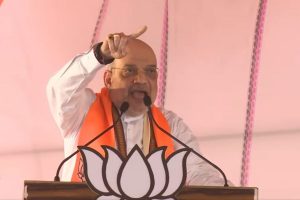Earlier this year, Union Minister of State for Electronics and Information Technology Rajeev Chandrasekhar said in a public interaction that legislation to cover the digital universe which Indians now inhabit was a pressing necessity. Since then, the Centre has been working on a new law ~ a previous attempt to regulate digital media under updated Information Technology rules had sparked a row in 2019 ~ which would apply to digital media and require tech platforms, for the first time, to apply for registration with the Information and Broadcasting Ministry.
The I&B Ministry would be the state’s administrative department that would regulate and, if required, penalise platforms disseminating “news on digital media through any electronic device”. Legislation to this effect is widely expected to be introduced in the forthcoming Winter Session of Parliament. As policymakers work on the draft of the new law, it may be helpful for them to take a close look at the European Union’s Digital Services Act (DSA), a landmark piece of legislation which is in the final stages of being fully approved by EU institutions.
Advertisement
The thrust of the Bill is that it enjoins specific obligations, rights, and duties on digital companies. The DSA’s co-regulatory mechanisms are of particular interest. (Co-regulatory mechanisms are governance structures where state involvement exists but is limited, and most of the actions are taken by other stakeholder groups usually under the oversight of one or more governmental bodies.) Tech expert David Morar makes the point that such mechanisms, fundamentally transparent, can be more inclusive than garden variety policy-formulation and would have built-in buy-in from industry. The EU, of course, has a history with Big Tech of which its antitrust case against Microsoft is an example. In this context, writes Morar, the EU has expressly pointed out that the DSA package is a tool to not just protect the rights of users, but to also “establish a level playing field” given the outsized role of “a few large platforms”.
Under the DSA, there are extra obligations for very large online platforms (VLOPs) and, crucially, for search engines. The DSA and its accompanying legislation such as the Digital Markets Act have been brought in with the clear purpose of countering the power of the large companies. In its construction and application, the DSA separates very large online platforms ~ defined as having more than 45 million monthly active users ~ from the rest of the online ecosystem. Experts agree that assessments, codes of conduct, and audits are the holy trinity of regulating the digital world. How these are adapted in Indian legislation which would need to take into account the wide disparity in internet-access, educational standards, and socio-cultural contexts of millions of users could well make or break the country’s future.
A version of this story appears in the print edition of the August 27, 2022, issue.
















